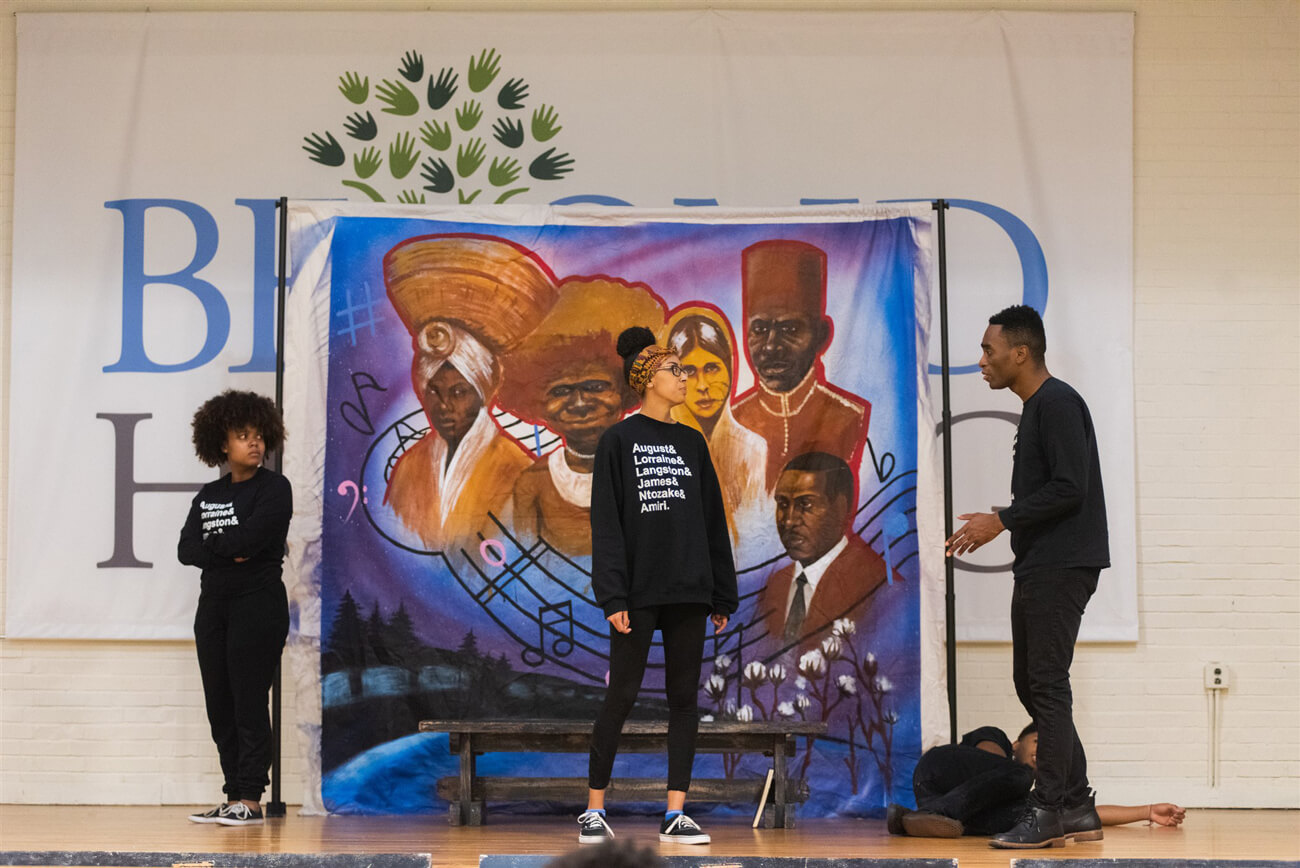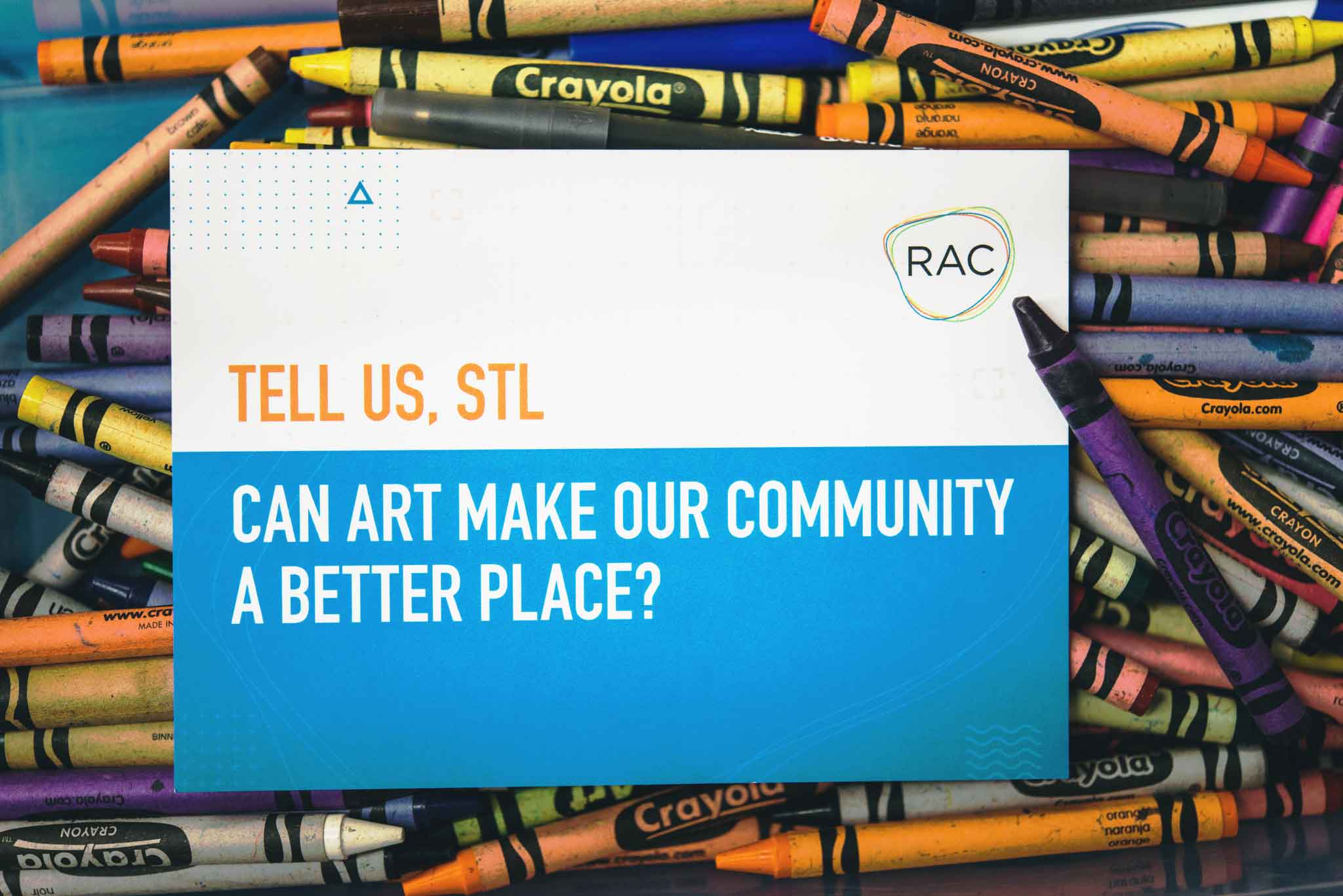Commitment to Diversity, Equity, and Inclusion
To ensure a full creative life for every St. Louisan, RAC commits to champion policies and practices that promote diversity, racial equity, accessibility, and inclusion in the arts.
Our Beliefs
To provide informed, authentic leadership for the achievement of this vision, RAC believes that:
- The ability to express, celebrate and champion cultural tradition and heritage is elemental to honest civic discourse and the well-being of our community;
- The assurance of equal opportunity for all people to participate in the arts is a fundamental starting point;
- Cultural programs must be fully accessible and inclusive to every individual, including people with disabilities and older adults;
- Artists and cultural creators have a unique role in challenging inequity and imagining new and more just realities;
- Inequity is pervasive and historic. Disparities and discrimination are daily occurrences rooted in long-standing majority privilege and power inside and outside of the arts.
- Sustained racialized public policies and institutional practices, both conscious and unconscious, have resulted in unequal access to education and resources for people of color. This systemic unequal access to opportunity has resulted in generations of unjust and inequitable outcomes for the community;
- We accept that power has created uneven starting points for some communities and individuals. And while equality has become synonymous with “leveling the playing field,” equity levels up systems for those who need it.
Our Commitments
As a leading public funder in the region, RAC commits to pursue racial equity internally and externally, so that the well-documented benefits of arts and culture can be more widely shared.
Internally
- Seek the knowledge and training needed to be a more equitable organization with a goal to be a model of best practices;
- Remain on a path of continuous improvement, reviewing existing policies, practices, and programs and making incremental changes as needed to achieve our stated goals;
- Hold ourselves accountable by acknowledging that racial equity does not currently exist in the arts which is holding St. Louis and the arts sector back;
- Ensure that the commitment is integrated into all facets and activities of the organization, from day-to-day operations to long range organizational goals and objectives. Every member — board and staff — is responsible.
Externally
- Encourage and support opportunities for constituents to learn about racial equity and to gain the skills they need to address inequities within their organizations and practices;
- Improve the cultural leadership pipeline in the local arts sector and promote the sharing of best practices in this work;
- Champion those who are making progress to be more equitable, promote examples and practices that facilitate strategies that lead to equity, and support artists and organizations in our cultural community who are equity champions;
- Join and support others — within and outside the arts — who are already part of a growing movement to make St. Louis a more racially equitable and inclusive place to live;
- Facilitate honest and ongoing conversations about all forms of discrimination within the arts to assure a deeper understanding about the historic and systemic contributors to exclusionary practices and the new norms and behaviors that must be adopted to create a more just society.


